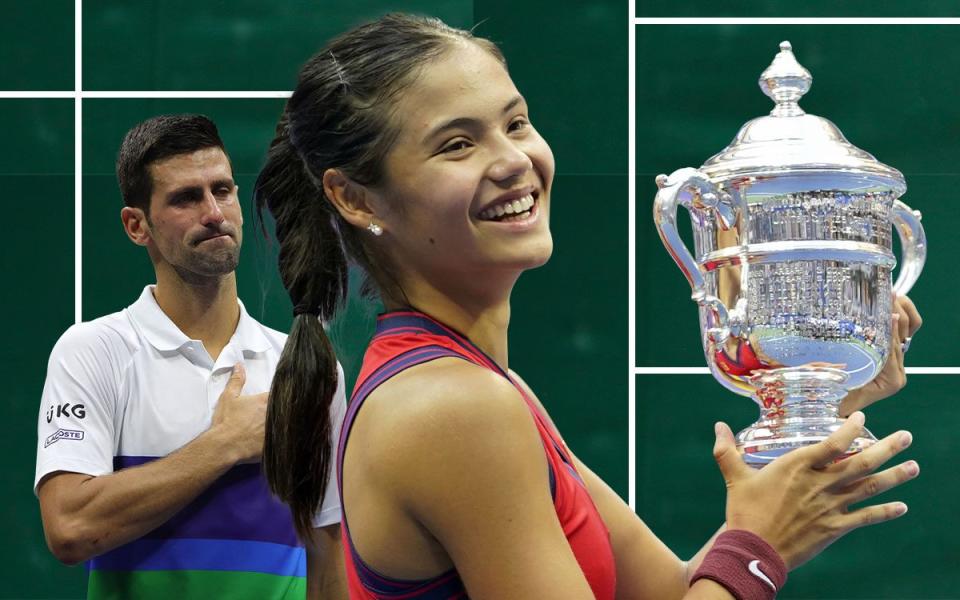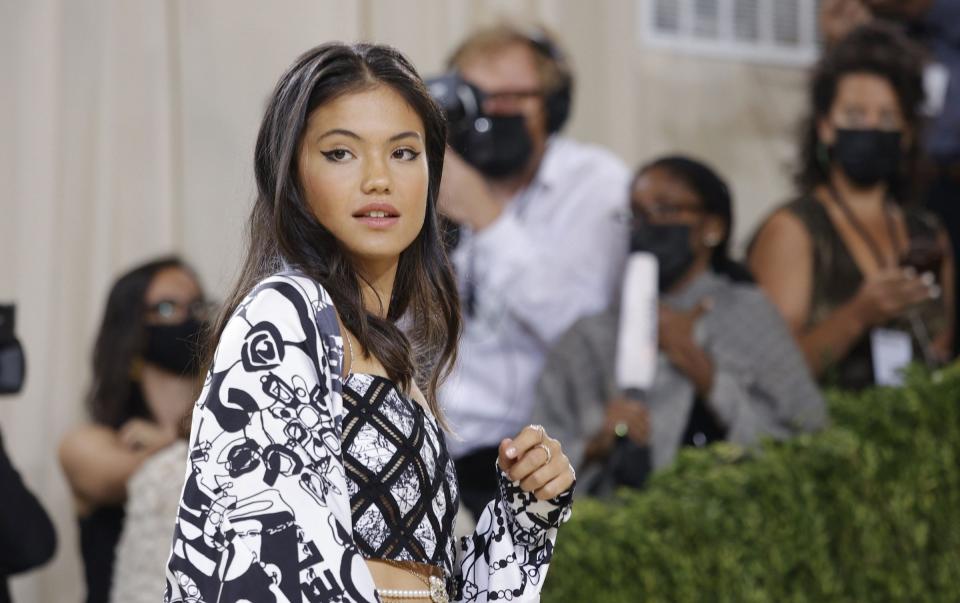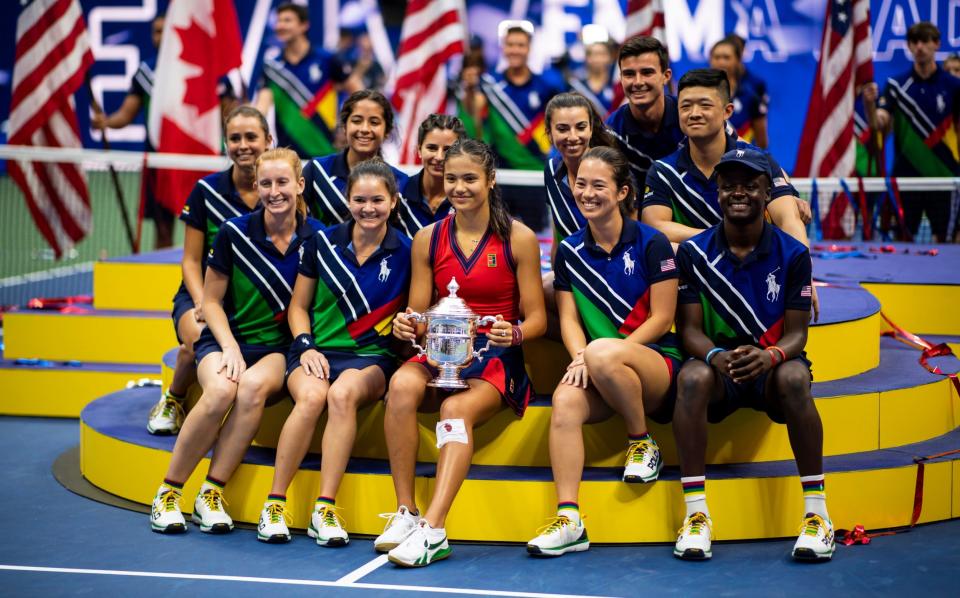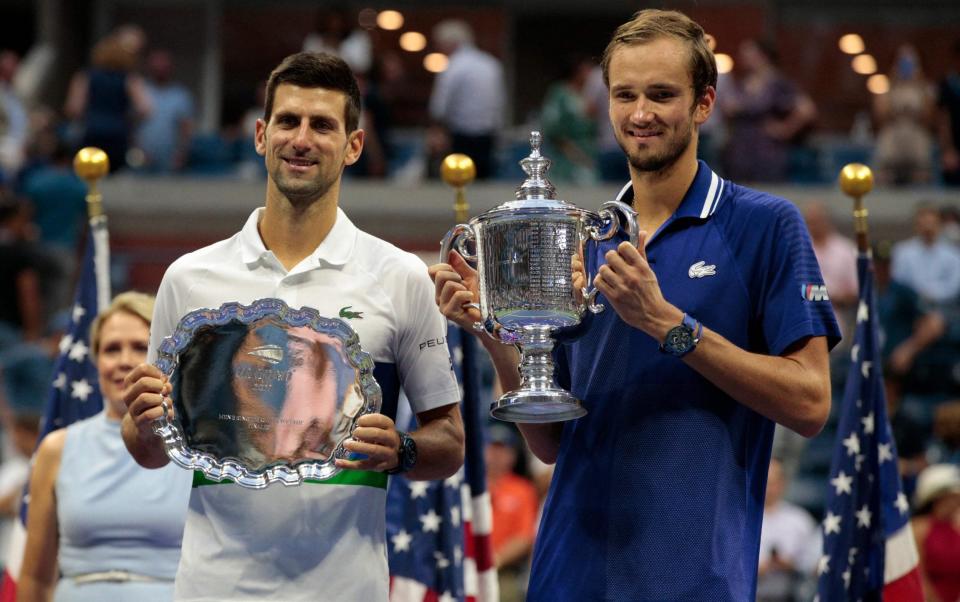Emma Raducanu and the new wave are showing why women's tennis is better than the men's

Emma Raducanu’s victory has understandably dominated tennis coverage in Britain, but it has also prompted debate around the state of women’s tennis and how it compares to the men’s game.
Here, Telegraph Sport analyses the two and suggests the Raducanu-led female tennis world is in better shape than the one inhabited by their male counterparts.
Greater interest
For five out of the past seven US Opens, the women’s final has attracted a bigger audience on ESPN, which broadcasts the tournament in America, than the men’s final. If anyone was looking for a statistic to rebut the baseless assertion that the sporting public does not care about female sport, it is there in black and white.
Raducanu’s straight-sets win over Leylah Fernandez peaked at 3.4 million viewers on Saturday, while Daniil Medvedev’s maiden major title topped out at 2.7m the following day - a statistic even more remarkable for the fact that the Russian denied Novak Djokovic, potentially destined to be hailed as the greatest male player in history, a calendar grand slam. Raducanu’s win also drew 9.2m viewers in the UK on Channel 4.
The Raducanu mania has known no bounds since her victory, with appearances on multiple primetime American chat shows, a visit to the New York Stock Exchange and an invitation - along with Fernandez - to the Met Gala.
It was notable that amid photos of those two teenage queens of women’s tennis at the fashion world’s most prestigious event, the new US Open men’s champion was absent (which may or may not be related to a requirement to be vaccinated against Covid).
In Djokovic and Medvedev, US Open organisers landed upon a final that was, statistically speaking, the strongest possible, featuring the No 1 and 2 seeds. Yet it failed to draw the same level of attention as a women’s final between two entirely unheralded teenagers ranked outside the world’s top 70.

More variety
For so long touted as a strength of the men’s game over their female counterparts, the dominance of a notable few male players has created a sense of formality at majors. In many ways - and it may well be heretical to say so when discussing some of the greatest players ever to step on court - it has become a little dull.
Rafael Nadal has won 13 of the last 17 French Opens; Djokovic has triumphed at nine of the last 14 Australian Opens and six of the last 10 Wimbledons. While the astonishing levels of ability and ensuing rivalry of the select few capable of winning majors has carried men’s tennis over the last decade or so, the element of uncertainty that is crucial to sport has often been lacking.
Even as Serena Williams spent more than 15 years steadily working her way towards Margaret Court’s record of major titles, every women’s slam would begin with few people having any idea who would emerge this time.
In the last decade Marion Bartoli, Flavia Pennetta, Jelena Ostapenko, Sloane Stephens, Caroline Wozniacki, Bianca Andreescu, Sofia Kenin, Iga Swiatek, Barbora Krejcikova and now Raducanu have won one, but no more than two, major titles.
Some have suggested such variety is indicative of a weakness at the top of women’s tennis, but there is a thrill in unpredictability.

Rising stars
For years, the tennis world has been eagerly attempting to hail the next generation of male stars ready to emerge from Djokovic, Nadal and Roger Federer’s significantly-sized shadow.
At different times, the likes of Milos Raonic, Alexander Zverev, Grigor Dimitrov, Marin Cilic, Stefanos Tsitsipas and Dominic Thiem have flirted with proving themselves worthy of being successors, without sustained success.
Whether Medvedev fares any better remains to be seen, but with Federer, 40, and Nadal, 35, looking like fading forces (with the caveat that they have both been wrongly written off before), a lack of true rivals to Djokovic could further harm the men’s game.
Indeed, while Thiem and Medvedev are the only men born since 1988 to have won a major singles title, Raducanu became the 14th woman to do so in a female talent pool that only continues to grow every year. That the US Open women’s final featured two teenagers can only bode well for the future.
While one side of the game is filled with fading stars, the other is packed with players on the rise.

Shorter matches
The argument around whether women should replicate their male counterparts and play best-of-five-set matches at majors has rumbled for decades, but the US Open television figures raise the question of whether viewers in fact prefer to watch best-of-three matches. Is a thriller between Raducanu and Fernandez lasting just less than two hours more palatable than a five-hour marathon between two of the leading male players?
While there have long been those who argue the greater speed and power of men means their matches are superior, there are others who suggest the relatively slower (a laughable term in light of the eye-opening hitting speed on display during Raducanu’s US Open triumph) rallies provide greater entertainment.
In any case, many female players have said they would be willing to match the men and play five sets at major tournaments if required, as was the case at the WTA Tour Finals from 1984 to 1998.
“I think every female athlete is ready to play five sets,” Serena Williams has said. “Actually, the tournaments have said, ‘no, we like you guys playing three sets’.”
Two-time major champion Amelie Mauresmo has said: “I would have loved to have played a five-set grand slam final. It would take women’s tennis to another physical and sporting level.”
The converse suggestion is that men should replicate the three-set match length of the ATP Tour at majors - something Djokovic has previously advocated.
Either way, the global response to Raducanu’s victory over Fernandez surely ends any arguments against awarding equal prize money to men and women. It is not merely about time on court.

 Yahoo Sport
Yahoo Sport 





































